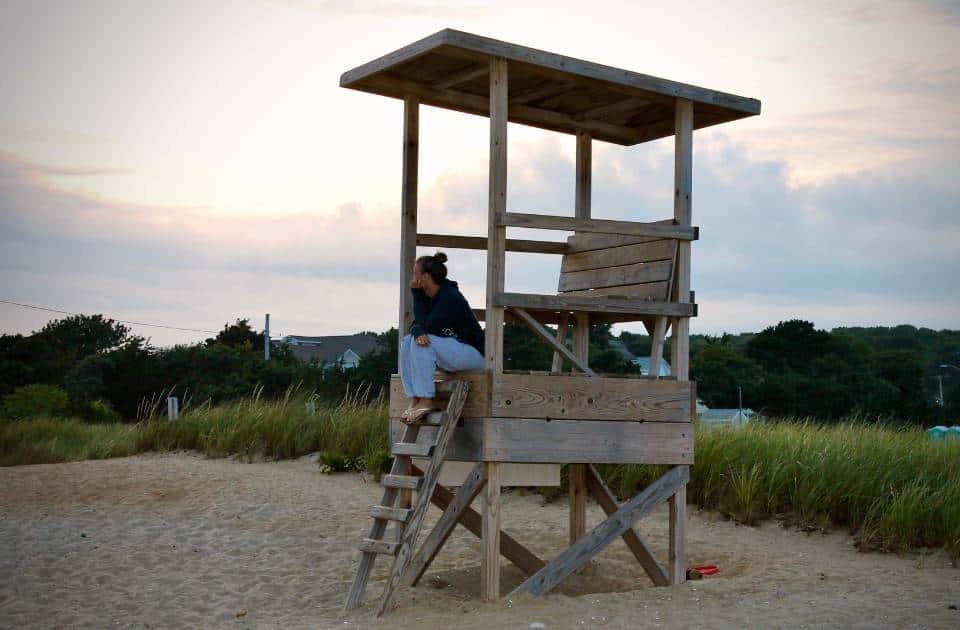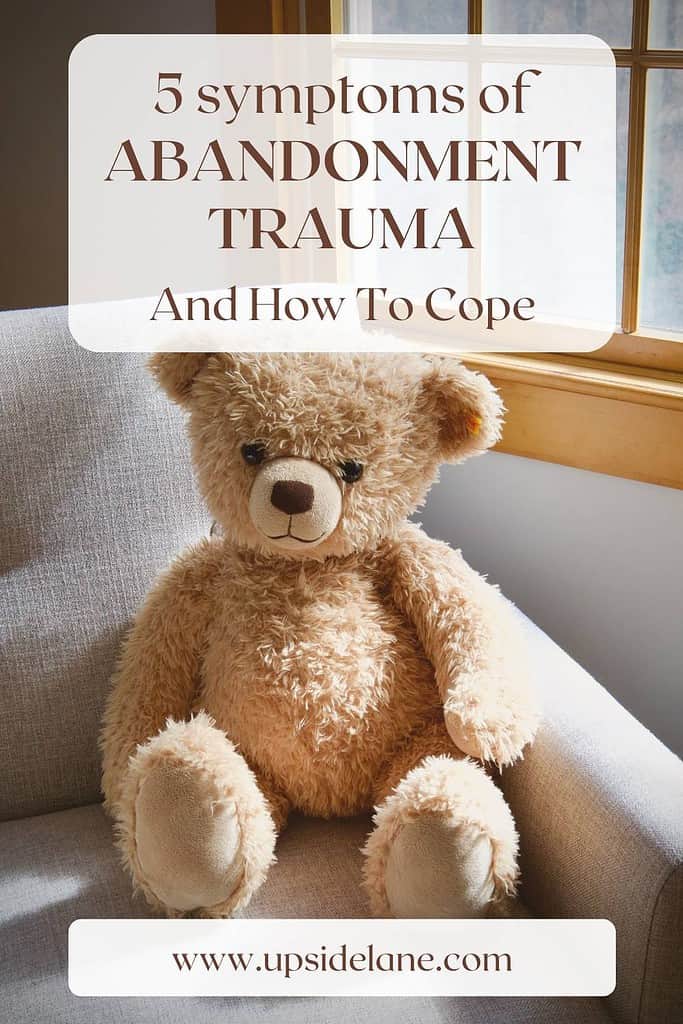5 Symptoms of Abandonment Trauma and How To Cope
Explore the world of abandonment trauma. Learn five key symptoms and practical coping strategies as we walk along the path toward healing.

Come with me and let’s look at the intricacies of abandonment trauma and five prevalent symptoms that could affect mental health.
We’ll look at coping strategies, from therapeutic interventions to building supportive and safe relationships, which help us as individuals embark on a journey toward health and emotional well-being.
Abandonment trauma is complex, with emotional experiences resulting from a variety of situations such as a traumatic event, emotional neglect, or the loss of a significant figure.
Understanding and recognizing the signs of abandonment trauma is important, not just for mental health professionals but for all of us.
In this article, we will explore five common symptoms of abandonment trauma and offer practical coping strategies to encourage healing.
Understanding Abandonment Trauma
Abandonment trauma often stems from traumatic experiences during childhood, perceived or real, intentional or not, which contributes to insecure attachment styles. If not dealt with properly, this can sometimes affect a person’s mental health throughout the course of their life.
Traumatic events can take the form of physical or emotional abandonment and can leave a lasting imprint on one’s emotional well-being.
The Cambridge Dictionary defines abandonment as,
the act of leaving someone or something or of ending or stopping something, usually forever (1).
Cambridge Dictionary
Trauma, according to the American Psychological Association, is defined as,
any disturbing experience that results in significant fear, helplessness, dissociation, confusion, or other disruptive feelings intense enough to have a long-lasting negative effect on a person’s attitudes, behavior, and other aspects of functioning (2).
American Psychological Association
When considering both definitions, abandonment, and trauma, one can see the potentially profound impact this condition might have on the quality of daily life and overall satisfaction.
Susan Anderson is a practicing psychotherapist and founder of the Abandonment Recovery Program. She is an expert on abandonment trauma and I found her explanation of abandonment to be the most informative.
Ms. Anderson states that abandonment “casts a wide net,” in that it is a core human fear, and anyone who has ever felt a loss of love or connection is affected. Abandonment is about the loss of love itself (3).

5 Common Symptoms Of Abandonment Trauma
The signs and symptoms of abandonment trauma can be many, however, here are five common symptoms of abandonment trauma.
1. Fear of Rejection and Abandonment
People who have experienced abandonment trauma often live with a heightened sense of abandonment anxiety, especially in relationships.
They fear rejection and physical abandonment, which can lead to overanalyzing situations and misinterpreting harmless actions as a sign of impending abandonment.
This fear of rejection and abandonment can sometimes turn into a form of hypervigilance, where individuals become hyper-alert to any perceived sign of rejection.
Not only is living with this heightened sensitivity difficult for the individual and their relationships but it can also create a self-fulfilling cycle of abandonment fears (4).
2. Difficulty Trusting Others
Those who have experienced past trauma may have difficulty trusting others, as this type of trauma erodes trust and can lead to a deep-seated fear of betrayal.
Individuals may struggle to trust others, and often fully expect those close to them to eventually cause harm and/or abandonment.
Because of this lack of trust, developing and maintaining healthy relationships becomes difficult. This can lead to a cycle of isolation and loneliness (5).
3. Low Self-Worth and Self-Esteem
Abandonment trauma often manifests as developing a negative self-image, where individuals internalize feelings of inadequacy and unworthiness. This negative self-perception can affect every area of their lives.
When people are victims of abandonment trauma, they often seek constant validation from others to counteract their low self-esteem.
This becomes a type of coping mechanism but does not address the root of the issue (6).
4. Emotional Dysregulation (trouble managing emotions)
Emotional dysregulation is considered a hallmark of abandonment trauma. Intense emotional reactions and outbursts to perceived threats, even when they are not significant. These intense reactions and mood swings can strain relationships and lead to emotional turmoil (7).
Those who experience childhood trauma and feelings of abandonment may struggle with managing and expressing their emotions effectively. Emotional outbursts or, conversely, emotional suppression can be used as a form of self-protection.
5. Intimacy Avoidance
Experiencing abandonment trauma can sometimes instill a fear of intimacy and a fear of feeling vulnerable. Individuals may avoid intimacy as a way of protecting themselves from potential emotional pain but this only perpetuates the cycle of isolation.
Sometimes this fear of intimacy can be so strong that the person with abandonment trauma may unconsciously sabotage close relationships as a way of protecting themselves. A means of maintaining control, and avoiding the perceived inevitability of being left/abandoned (8).
Coping Strategies For Abandonment Trauma
Addressing abandonment trauma requires strength and courage. The most effective way is to use a comprehensive, versatile approach. This may include therapeutic interventions, building healthy relationships, and prioritizing self-care.
Here are some effective coping strategies when trying to heal from abandonment trauma.
Professional Counseling
Seeking professional help and different treatment options for abandonment trauma can be very helpful. Be it through individual therapy or group therapy, sometimes it is difficult to see the big picture, and it requires the guidance of a trauma therapy expert to help navigate the way and provide a clear path forward.
Cognitive behavioral therapy (CBT)
One helpful tool for trauma victims is cognitive behavioral therapy (CBT). CBT is a problem-oriented type of psychotherapy that focuses on current problems and finds solutions for them. It aims to identify and change current distressing negative thoughts and behavior patterns (9).
Cognitive behavior therapy is commonly used to treat depression, anxiety disorders, and obsessive-compulsive disorders, and it can be a helpful tool for individuals dealing with abandonment trauma.
dialectical behavior therapy (DBT)
Another successful form of therapy is dialectical behavior therapy (DBT), especially for emotional dysregulation and for building skills in distress tolerance, emotion regulation, and interpersonal effectiveness.
Dialectical behavior therapy is a type of psychotherapy, similar to cognitive behavior therapy, however, DBT is aimed more at people who experience emotions very intensely.
DBT is commonly used for those with mental health conditions such as borderline personality disorder; those who experience emotions intensely and have a hard time regulating them. DBT helps people accept the reality of their lives and behaviors while also helping them learn to change their lives and unhelpful behaviors (10).

Building Healthy Relationships
Building healthy relationships takes trust and time. People who have abandonment experience can benefit from taking small steps to trusting others gradually. Reminding themselves that not everyone will cause harm and abandonment.
Learning to communicate effectively is also part of developing healthy relationships. Expressing emotional needs and learning to implement healthy boundaries can aid in creating a supportive environment.
Developing Self-Compassion and Self-Care
Developing self-compassion and addressing one’s own needs through self-care is extremely helpful, and a healthy way to heal from childhood abandonment and fears of abandonment.
One way to do this is by participating in activities that promote a positive self-image. Activities such as self-reflection, self-affirmations, and celebrating personal achievements and successes.
Focusing on activities that bring joy and fulfillment can be the first step in enhancing overall well-being. Activities such as personal hobbies like reading, knitting, and crafting. Socializing with friends, enjoyable physical activities such as walking, yoga, pickleball, tennis, etc., or even just spending time in nature.
Mindfulness and Emotional Regulation
Mindfulness practices can help individuals with an intense fear of abandonment stay present and manage overwhelming emotions.
It is a form of meditation that involves focusing on what you are sensing and feeling in the moment, without making any judgments. Research shows it to be helpful with stress, anxiety, chronic depression, and more (11).
Different types of mindfulness techniques include deep breathing exercises, grounding techniques, and body scanning. All are designed to help you stay present in the moment and focus on your senses.
Strong Support Network
Developing a strong support network is important for abandonment trauma survivors. Whether it is from friends, family members, church, or another social support group, all of these can provide emotional connection and help to create a sense of belonging.
Formal support groups, especially ones that deal directly with abandonment trauma, can be extremely valuable. Offering a safe space to share experiences and learn new coping strategies.
Sharing your story, and learning about others who have faced similar challenges can help reduce feelings of isolation, and provide encouragement and support to know that you are not alone.

My Own Abandonment Story
For me abandonment trauma is real. I had a bit of a rough start entering this world. Born three months premature, with a collapsed lung, and then consequently developed pneumonia. I had the love of my parents but because I was so ill, I also had to stay alone in the hospital for close to three months.
I do not remember this of course, but experts do believe that these experiences stay within the recesses of our mind and body. Almost like you have the feelings but without the memories themselves (12).
My father was an alcoholic and caused quite a disruption in the family until he left when I was eight years old. This was hard for me. Even though our home was not healthy at the time, as the youngest in the family, I missed being “daddy’s little girl” tremendously.
Unaware of how these abandonment experiences affected me, I grew up and went on with my life. I had a wonderful supportive mother, my brothers who loved me, and a male mentor gymnastic coach who was very kind and served as a strong male parental figure. I knew my upbringing was perhaps a little “rough” but I always thought many people had it far worse than me.
Coming To Terms With My Abandonment Trauma
Not until I became an adult and saw the deterioration of not just one but two failed marriages, did I stop and take a closer look at my abandonment issues.
Today, although being in a relationship with Doug who has Parkinson’s disease is wonderfully beautiful, and amazing, he truly is my best friend, it is also challenging at times regarding abandonment trauma.
Sometimes Doug’s Parkinson’s can bring up strong feelings of abandonment. Watching how Parkinson’s takes. a hold of him, knowing there is no cure, can make me feel like he is slowly and progressively going away and there is nothing I can do about it.
Intellectually I tell myself that this situation is different from when I was a young child but the emotional trauma runs deep. There is still work to be done so that I don’t continually get “spooked” by what is happening in our lives.
Doug and I communicate often and our goal is to remain as transparent as we can with each other.
In terms of healing from abandonment trauma, I have come a long way. It will continue to be an ongoing process, more than likely for life, but one that is very much worth working on.
Become An Abandonment Survivor
Truth be told, we all have work to do in this area. Every one of us has experienced abandonment in some form.
I hope you will try some of these coping strategies. Seek professional help if you need it, and with persistence and an openness to healing, I hope you will navigate the challenges of abandonment trauma and build a beautiful, healthy, and fulfilling life.
FREE GUIDE: Helpful Caregiver Resources
Additional Posts For Caregiver Support
Let’s Connect
I hope you found this article on abandonment trauma helpful. Please consider sharing it with friends and family if you wish. Thank you.
Also, I would love to know if you too have dealt with, or are continuing to deal with, abandonment issues. Please share your thoughts in the comment section below. I would love to hear from you.
Reference
- dictionary.cambridge.org/us/dictionary/english/abandonment
- dictionary.apa.org/trauma
- https://www.abandonment.net/faqs-1
- https://cptsdfoundation.org/2022/08/29/the-agony-of-abandonment/
- https://www.abandonment.net/articles/how-to-keep-abandonment-from-sabotaging-your-life
- https://www.ncbi.nlm.nih.gov/pmc/articles/PMC10298591/
- https://medium.com/abandonment-recovery/borderline-and-abandonment-part-i-what-to-do-when-theres-emotional-hijacking-50b947842adb
- https://medium.com/abandonment-recovery/overcoming-loves-invisible-barriers-12-steps-bcf87a09945
- https://www.ncbi.nlm.nih.gov/books/NBK279297/
- https://my.clevelandclinic.org/health/treatments/22838-dialectical-behavior-therapy-dbt
- https://www.mayoclinic.org/healthy-lifestyle/consumer-health/in-depth/mindfulness-exercises/art-20046356
- https://www.ncbi.nlm.nih.gov/pmc/articles/PMC3929851/




Wow, this is so good. I had abandoned issues for a long time due to my father leaving when I was 4 years old. It carried on in my life well into my married years until I finally figured out what it was. If I had therapy as a kid I think it would have really helped me.
Same. Most people cannot get through life without feeling some form of abandonment. I felt it important to shed some light on the topic in an effort to breakdown some of the prejudice and stereotype around the topic. Thanks for reading, and for the support.